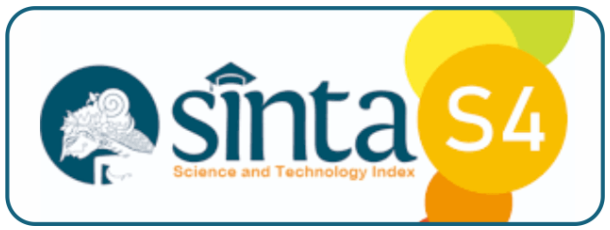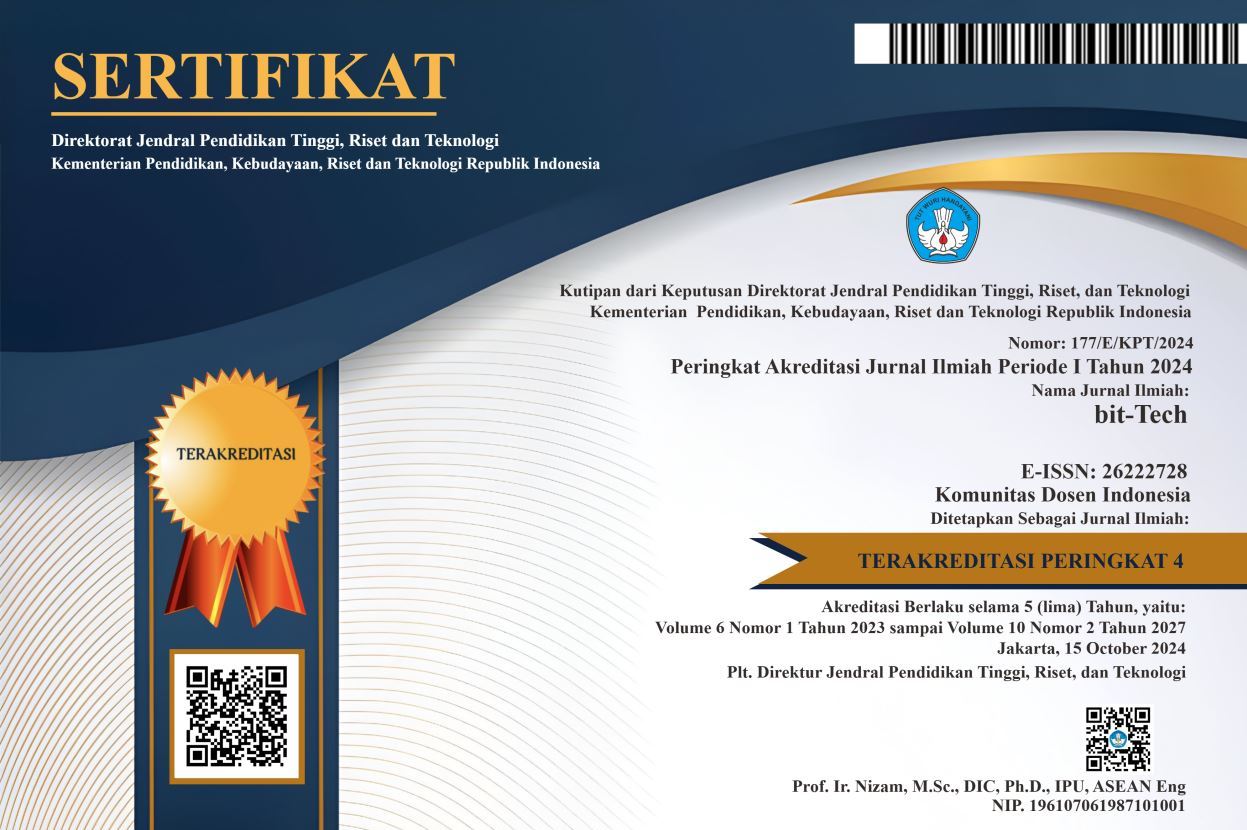Artificial Intelligence in Performance Evaluation (Case Study of PT. Pos Indonesia Employees)
DOI:
https://doi.org/10.32877/bt.v7i2.1817
Keywords:
Artificial intelligence, Employee Perceptions, Employee Experience, HR Management, Performance Evaluation
Abstract
The development of artificial intelligence (AI) has revolutionized various aspects of human resource management, including employee performance evaluation. While existing studies have extensively explored the potential of AI in improving efficiency and objectivity, they often overlook the nuanced employee experiences and organizational dynamics that influence its successful implementation. This research bridges this gap by examining the perceptions and experiences of PT Pos Indonesia employees regarding the use of an AI-based performance evaluation system. Using a qualitative approach with a phenomenological design, data was collected through in-depth interviews with employees who have used the system for at least six months. The findings reveal that AI contributes significantly to enhancing efficiency and reducing subjectivity in evaluations. However, challenges such as algorithm bias, the relevance of performance metrics, and system transparency remain prevalent. Importantly, this study identifies critical factors influencing acceptance, including employee understanding, trust, and perceptions of fairness in the evaluation process. Unlike previous research, this study emphasizes the interplay between technological and human factors, highlighting the irreplaceable role of human interaction in providing qualitative context. This research extends the existing literature by offering a deeper understanding of employee-centered factors and organizational practices that facilitate the integration of AI in performance evaluation. Practically, it provides actionable insights for organizations aiming to implement AI-based systems effectively, ethically, and equitably.
Downloads
References
Bankar, S. and Shukla, K. (2023), "Performance Management and Artificial Intelligence: A Futuristic Conceptual Framework", Grima, S., Sood, K. and Ozen, E. (Ed.) Contemporary Studies of Risks in Emerging Technology, Part B (Emerald Studies in Finance, Insurance, and Risk Management), Emerald Publishing Limited, Leeds, pp. 341-360. https://doi.org/10.1108/978-1-80455-566-820231019
Becirovic, S. and Mattos, B. (2024), "Artificial Intelligence in the Transformation of Higher Education: Threats, Promises and Implementation Strategies", Lytras, M.D., Serban, A.C., Alkhaldi, A., Malik, S. and Aldosemani, T. (Ed.) Digital Transformation in Higher Education, Part A (Emerald Studies in Active and Transformative Learning in Higher Education), Emerald Publishing Limited, Leeds, pp. 23-43. https://doi.org/10.1108/978-1-83549-480-620241002
Biswas, M.I., Talukder, M.S. and Khan, A.R. (2024), "Who do you choose? Employees' perceptions of artificial intelligence versus humans in performance feedback", China Accounting and Finance Review, Vol. 26 No. 4, pp. 512-532. https://doi.org/10.1108/CAFR-08-2023-0095
Bock, D.E., Wolter, J.S. and Ferrell, O.C. (2020), "Artificial intelligence: disrupting what we know about services", Journal of Services Marketing, Vol. 34 No. 3, pp. 317-334. https://doi.org/10.1108/JSM-01-2019-0047
Colakoglu, S.S., Erhardt, N., Pougnet-Rozan, S. and Martin-Rios, C. (2019), "Reviewing Creativity and Innovation Research Through the Strategic HRM Lens", Buckley, M.R., Wheeler, A.R., Baur, J.E. and Halbesleben, J.R.B. (Ed.) Research in Personnel and Human Resources Management (Research in Personnel and Human Resources Management, Vol. 37), Emerald Publishing Limited, Leeds, pp. 227-271. https://doi.org/10.1108/S0742-730120190000037007
De Silva, P., Gunarathne, N. and Kumar, S. (2024), "Exploring the impact of digital knowledge, integration and performance on sustainable accounting, reporting and assurance", Meditari Accountancy Research, Vol. ahead-of-print No. ahead-of-print. https://doi.org/10.1108/MEDAR-02-2024-2383
Di Vaio, A., Latif, B., Gunarathne, N., Gupta, M. and D'Adamo, I. (2024), "Digitalization and artificial knowledge for accountability in SCM: a systematic literature review", Journal of Enterprise Information Management, Vol. 37 No. 2, pp. 606-672. https://doi.org/10.1108/JEIM-08-2022-0275
Dutta, D. and Mishra, S.K. (2024), "Artificial intelligence-based virtual assistant and employee engagement: an empirical investigation", Personnel Review, Vol. ahead-of-print No. ahead-of-print. https://doi.org/10.1108/PR-03-2023-0263
Jebbor, S., Raddouane, C. and El Afia, A. (2022), "A preliminary study for selecting the appropriate AI-based forecasting model for hospital assets demand under disasters", Journal of Humanitarian Logistics and Supply Chain Management, Vol. 12 No. 1, pp. 1-29. https://doi.org/10.1108/JHLSCM-12-2020-0123
Mendy, J., Jain, A. and Thomas, A. (2024), "Artificial intelligence in the workplace – challenges, opportunities and HRM framework: a critical review and research agenda for change", Journal of Managerial Psychology, Vol. ahead-of-print No. ahead-of-print. https://doi.org/10.1108/JMP-05-2024-0388
Kambur, E. and Akar, C. (2022), "Human resource developments with the touch of artificial intelligence: a scale development study", International Journal of Manpower, Vol. 43 No. 1, pp. 168-205. https://doi.org/10.1108/IJM-04-2021-0216
Kim, J.-Y. and Heo, W. (2022), "Artificial intelligence video interviewing for employment: perspectives from applicants, companies, developer and academicians", Information Technology & People, Vol. 35 No. 3, pp. 861-878. https://doi.org/10.1108/ITP-04-2019-0173
Halagatti, M., Gadag, S., Mahantshetti, S., Hiremath, C.V., Tharkude, D. and Banakar, V. (2023), "Artificial Intelligence: The New Tool of Disruption in Educational Performance Assessment", Tyagi, P., Grima, S., Sood, K., Balamurugan, B., Özen, E. and Eleftherios, T. (Ed.) Smart Analytics, Artificial Intelligence and Sustainable Performance Management in a Global Digitalised Economy (Contemporary Studies in Economic and Financial Analysis, Vol. 110A), Emerald Publishing Limited, Leeds, pp. 261-287. https://doi.org/10.1108/S1569-37592023000110A014
Hossain, M.K., Srivastava, A., Oliver, G.C., Islam, M.E., Jahan, N.A., Karim, R., Kanij, T. and Mahdi, T.H. (2024), "Adoption of artificial intelligence and big data analytics: an organizational readiness perspective of the textile and garment industry in Bangladesh", Business Process Management Journal, Vol. ahead-of-print No. ahead-of-print. https://doi.org/10.1108/BPMJ-11-2023-0914
Preece, M. (2015), "Managing Information and Knowledge in Service Industries", Sustaining Competitive Advantage Via Business Intelligence, Knowledge Management, and System Dynamics (Advances in Business Marketing and Purchasing, Vol. 22B), Emerald Group Publishing Limited, Leeds, pp. 3-154. https://doi.org/10.1108/S1069-09642015000022B002
Rawashdeh, A. (2024), "A deep learning-based SEM-ANN analysis of the impact of AI-based audit services on client trust", Journal of Applied Accounting Research, Vol. 25 No. 3, pp. 594-622. https://doi.org/10.1108/JAAR-10-2022-0273
Qamar, Y., Agrawal, R.K., Samad, T.A. and Chiappetta Jabbour, C.J. (2021), "When technology meets people: the interplay of artificial intelligence and human resource management", Journal of Enterprise Information Management, Vol. 34 No. 5, pp. 1339-1370. https://doi.org/10.1108/JEIM-11-2020-0436
Roy, G. and Jain, V. (2022), "Role of Artificial Intelligence in Gamification for the Emerging Markets", Chemma, N., El Amine Abdelli, M., Awasthi, A. and Mogaji, E. (Ed.) Management and Information Technology in the Digital Era (Advanced Series in Management, Vol. 29), Emerald Publishing Limited, Leeds, pp. 9-25. https://doi.org/10.1108/S1877-636120220000029002
Singh, A. and Chouhan, T. (2023), "Artificial Intelligence in HRM: Role of Emotional–Social Intelligence and Future Work Skill", Tyagi, P., Chilamkurti, N., Grima, S., Sood, K. and Balusamy, B. (Ed.) The Adoption and Effect of Artificial Intelligence on Human Resources Management, Part A (Emerald Studies in Finance, Insurance, and Risk Management), Emerald Publishing Limited, Leeds, pp. 175-196. https://doi.org/10.1108/978-1-80382-027-920231009
Varghese, R., Deshpande, A., Digholkar, G. and Kumar, D. (2023), "Deciphering the Role of Artificial Intelligence in Health Care, Learning and Development", Tyagi, P., Chilamkurti, N., Grima, S., Sood, K. and Balusamy, B. (Ed.) The Adoption and Effect of Artificial Intelligence on Human Resources Management, Part B (Emerald Studies in Finance, Insurance, and Risk Management), Emerald Publishing Limited, Leeds, pp. 149-179. https://doi.org/10.1108/978-1-80455-662-720230010
Vishwakarma, L.P. and Singh, R.K. (2023), "An Analysis of the Challenges to Human Resource in Implementing Artificial Intelligence", Tyagi, P., Chilamkurti, N., Grima, S., Sood, K. and Balusamy, B. (Ed.) The Adoption and Effect of Artificial Intelligence on Human Resources Management, Part B (Emerald Studies in Finance, Insurance, and Risk Management), Emerald Publishing Limited, Leeds, pp. 81-109. https://doi.org/10.1108/978-1-80455-662-720230006
Wamba-Taguimdje, S.-L., Fosso Wamba, S., Kala Kamdjoug, J.R. and Tchatchouang Wanko, C.E. (2020), "Influence of artificial intelligence (AI) on firm performance: the business value of AI-based transformation projects", Business Process Management Journal, Vol. 26 No. 7, pp. 1893-1924. https://doi.org/10.1108/BPMJ-10-2019-0411
Zhao, J., Wang, X., Yao, X. and Xi, X. (2024), "Digital-intelligence transformation, for better or worse? The roles of pace, scope and rhythm", Internet Research, Vol. ahead-of-print No. ahead-of-print. https://doi.org/10.1108/INTR-12-2023-1125
Downloads
Published
How to Cite
Issue
Section
License
Copyright (c) 2024 bit-Tech

This work is licensed under a Creative Commons Attribution-ShareAlike 4.0 International License.
I hereby assign and transfer to bit-Tech all exclusive copyright ownership rights to the above work. This includes, but is not limited to, the right to publish, republish, downgrade, distribute, transmit, sell, or use the work and other related materials worldwide, in whole, or in part, in all languages, in electronic, printed, or any other form of media, now known or hereafter developed and reserves the right to permit or license a third party to do any of the above. I understand that this exclusive right will belong to bit-Tech from the date the article is accepted for publication. I also understand that bit-Tech, as the copyright owner, has sole authority to license and permit reproduction of the article. I understand that, except for copyright, any other proprietary rights associated with the work (e.g. patents or other rights to any process or procedure) must be retained by the author. In addition, I understand that bit-Tech permits authors to use their papers in any way permitted by the applied Creative Commons license.


 DOI :
DOI :
 Abstract views: 184
/
Abstract views: 184
/  PDF downloads: 82
PDF downloads: 82











